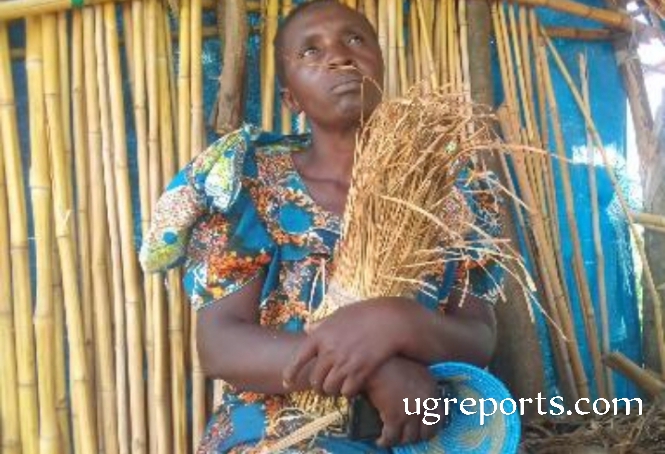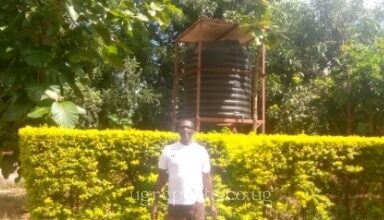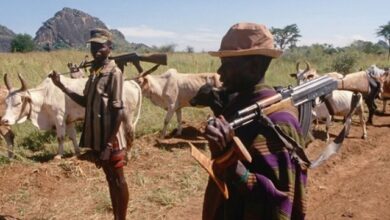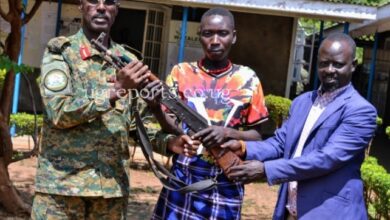Internally displaced women find hope in Kasese District

By Obed Kithende
Kasese: Rising from the waters of the 2019 floods, internally displaced women in Muhokya transit camp, located in Busongora County South, Kasese District, are embarking on a journey of empowerment through
vocational skills, demonstrating remarkable success in the face of adversity.
The devastating floods of May 7th, 2020 left a trail of destruction, particularly in the areas of Kanyangeya cell of Nyamwamba Division in Kasese Municipality, as well as in Karusandara sub-county and Maliba sub-county in Busongora North, Kasese District.
In the aftermath of these floods, survivors were evacuated to an emergency center at Kanyangeya Primary School in Nyamwamba Division, Kasese Municipality. Then, on December 18th, 2020, the government transferred them to Muhokya transit camp in Muhokya town council, Busongora South, Kasese District.
A diverse group of internally displaced women from 224 households, with a population of 1,383 people, each with their own unique strengths and challenges, came together to transform themselves into sustainable entrepreneurs.
This transformation was achieved through a project focused on weaving baskets and creating carrions, implemented by KARITASI Kasese, a non-governmental organization initiated by the Catholic Diocese of Kasese.
Their journey of resilience and development shines a light on the indomitable spirit of women who refuse to be defined by their past.
After spending a year in the camp, Karitas Kasese, a non-governmental organization affiliated with the Diocese of Kasese, visited the camp and began training a group of women in the art of basket weaving, which soon became their primary source of income.
Ms. Felesta Muhindo, a 52-year-old mother of seven, and her husband, Mr. Aston Miregho, 67 years old, were residents of Kanyangeya cell before coming to the camp. They lost their five-room house, which Felesta had
constructed with her savings from selling agricultural produce from the Mubuku Irrigation Scheme. She now narrates how she has managed to sustain herself through basket weaving while in the camp.
Felesta explains that, after acquiring the skill of weaving, she can create a basket within three days. The materials for one basket cost 3,000 shillings, and she sells it for 10,000 shillings for a small one and 17,000 Ugandan shillings for a medium-sized one with a cover.
Mrs. Josephine Kule Mbambu, another member of the group and a mother of four, explains that her husband, Mr. Jockus Kule, aged 40, had difficulty finding work while in the camp. However, through basket weaving, they found a thriving market for their products within the camp. Josephine narrates that, thanks to the demand for their baskets within the camp and at their roadside market, she now saves money on a daily basis.
She mentions that they now receive contracts from people who deal in crafts, ordering more of their products. The high demand has allowed them to earn 120,000 shillings from the project each month.
Realizing their expertise, they formed a group of 17 members specializing in basket weaving and eight members creating carrion due to the high demand for their products.
Furthermore, they initiated a savings and credit group called Muhokua Camp Thulemberane Group, which is in the process of legal registration.
Mrs. Yayeri Masika, a 50-year-old widow with eight children and three grandchildren who now serves as the SACCO chairperson, recounts how floods destroyed her two-roomed house in Kanyangeya cell, Nyamwamba.
Division. To build her house, she worked as a security officer at the Mubuku Irrigation Scheme, where she started saving to buy land.
With her savings and earnings from the irrigation scheme, she bought land and constructed a two-roomed semi-permanent house in 2011. However, after floods ravaged her house, she had no choice but to join the
Muhokya camp. After acquiring skills in basket making and carrion production, they began a savings scheme. Through savings, they managed to pay school fees for their children and lease land for agricultural use in Muhokya Mini-Irrigation Scheme, located in Rutooke cell in Muhokya town council.
Yayeri emphasizes that the high demand for baskets within the camp allows them to earn 120,000 shillings from the project each month. She believes that with government financial support and more vocational skills training, their production could increase, bringing more resources for the community.
Their group aims to raise funds to address challenges, including purchasing land in safer areas to construct houses. Additionally, they have started community sensitization campaigns on climate change mitigation through their group.
Ms. Rehema Aryema Namale, the camp chairperson, expresses gratitude for the care they have received from the government during their nearly three-year stay in the camp. However, she appeals to the government to expedite their resettlement to enable them to be self-reliant, as they have not received food support for the past eight months.
She calls on Members of Parliament to consider internally displaced people similarly to those in refugee camps so that they can benefit from the national budget.
Rev. Fr. Anyesio Mbusa, the Director of Karitasi Kasese, explains that they decided to provide hands-on skills training to the people in the camp to boost their economy, as they had lost all their property to floods and landslides. According to him, the project has started yielding positive results, as the mothers who received basket weaving training are now taking their products to different markets in the district.
Mr. Joseph Isingoma, the Kasese District Senior Planner and the focal person for the Disaster Coordination and Preparedness Committee, notes that the government is in the process of resettling the people by providing them with land.
Mr. Ham Natuhwera, the Vice Chairperson of Kasese District, shares that the district council and leadership are negotiating with the Office of the Prime Minister to resettle survivors in a safer place, allowing them
to establish their homes and engage in economic activities.
Mr. Erius Byamungu, the Kasese District Chief Administrative Officer, reveals that the government has implemented numerous interventions to benefit the people in the camp, including participation in the Emyooga program, the Parish Development Model, and the SAGE social assistance grants for empowerment, among others.
In the camp, a total of 67 people have benefited from the Emyooga program, with 47 being women and 20 men. Additionally, 18 people have benefited from the Parish Development Model. The government is actively
working on securing land to accommodate the people in the camp and support their resettlement.
In the face of adversity, these internally displaced women have shown resilience, determination, and an unwavering spirit to rebuild their lives and communities. Through vocational skills training and economic empowerment, they are not only supporting their families but also creating a sense of hope for a brighter future, even in the wake of a disaster.
Their story serves as an inspiration and a testament to the strength of the human spirit in the face of adversity, and it emphasizes the importance of community support and government initiatives in empowering those affected by natural disasters.
Do you have a story about your community or an opinion to share with us? Email us at theugreports@gmail.com.






